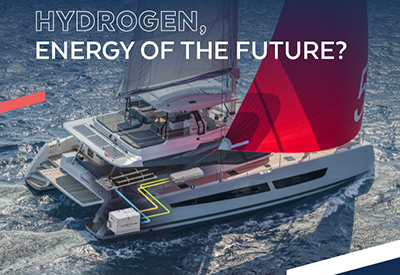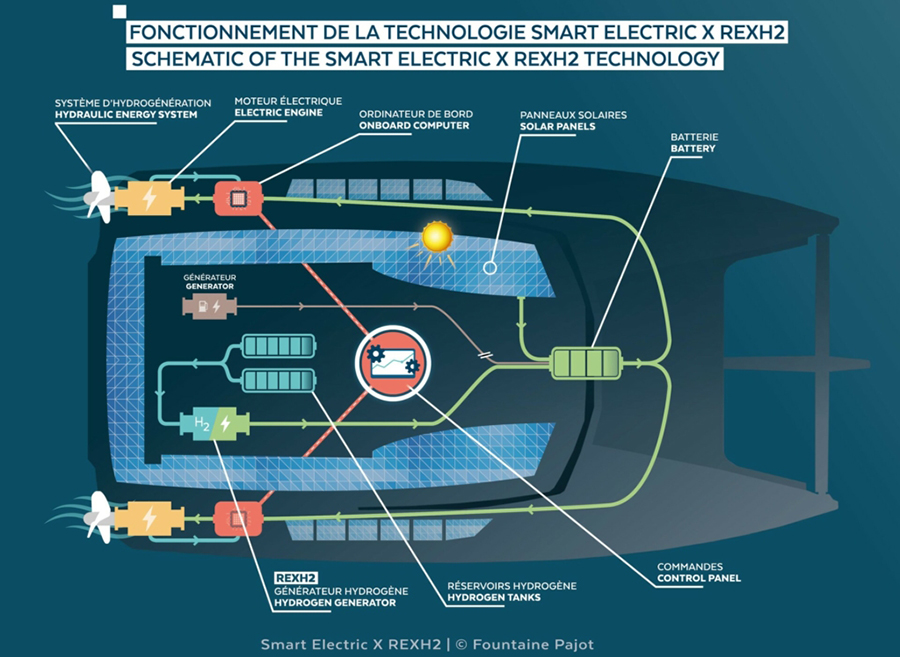The Hydrogen-Powered Samana 59

July 17, 2023
Two months ago, Fountaine Pajot organized its Innovation Show in La Rochelle, France. The theme was future solutions for decarbonising the world of leisure boating. At the event, Fountaine Pajot unveiled the Samana 59 Smart Electric REXH2, the first 100% electric hydrogen catamaran to be based on a production model.
The Samana 59 Smart Electric X REXH2, named after the electro-hydrogen generator it carries, the REXH2, is now able to offer a 100% zero-emission navigation experience. Its system is based on 3 operating modes:
1 – The first mode allows the Samana 59 to be used in 100% electric mode. Its on-board battery of 60 kw/h, powered by a very large surface of solar panels of 42m² and a capacity of 8500 watts, as well as its hydraulic energy function, like the Aura 51 Smart Electric, allows it to be autonomous at anchor and during several hours when sailing.
2 – The second mode of operation integrates, in addition, hydrogen as a source of energy storage and thus allows for hybrid electro-hydrogen operation. Hydrogen, under pressure, feeds a fuel cell with a capacity of 70kw which will supply electricity to the electric motors. This fuel cell technology, in addition to being an efficient decarbonisation solution, allows for an increased life span of the system, equivalent to 3 times the life span of traditional diesel equipment. In use, the operation remains similar to that of a conventional hydrogen hybrid car, with recharging possibility at port via hydrogen terminals. This mode, coupled with the use of solar panels and hydrogen generation, provides a comfortable autonomy at anchor for several weeks, and 5 hours of motor navigation at a speed of 7 knots.

3 – The third mode is Diesel Hybrid operation. The Samana 59 Smart Electric X REXH2 has a back-up generator that will take over during situations that require prolonged use of the engines with no possibility of recharging with hydrogen.
An industrial challenge
The first challenge in this project was to integrate a complete hydrogen system on-board a production pleasure boat. The second and most important issue was safety, by having a boat that meets all the standards and technical compliance requirements for the implementation of a hydrogen system. It is a technical and industrial challenge shared with partners who are pioneers in the decarbonisation of cruising and whose future will depend on the evolution of international hydrogen infrastructures, which underlines the fact that the project is so pioneering..



























